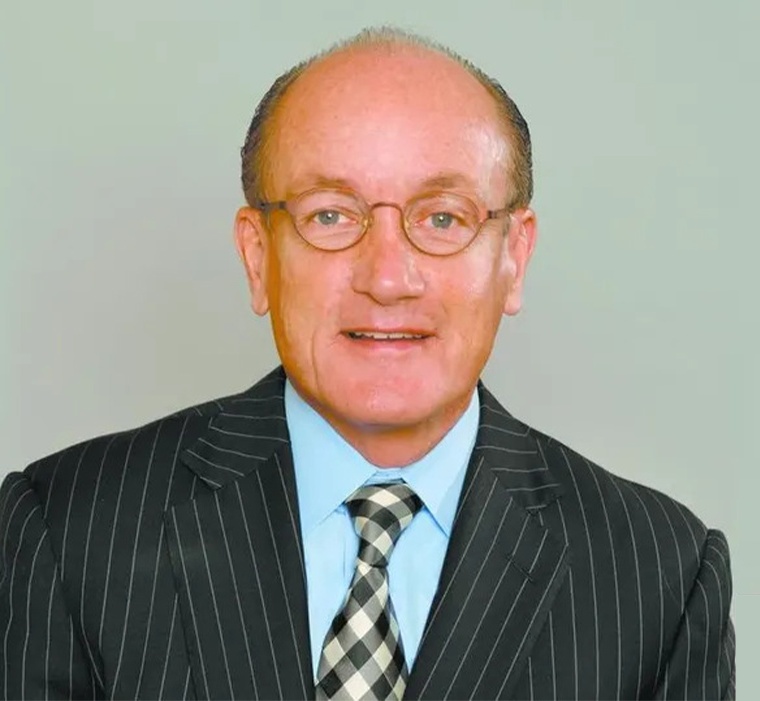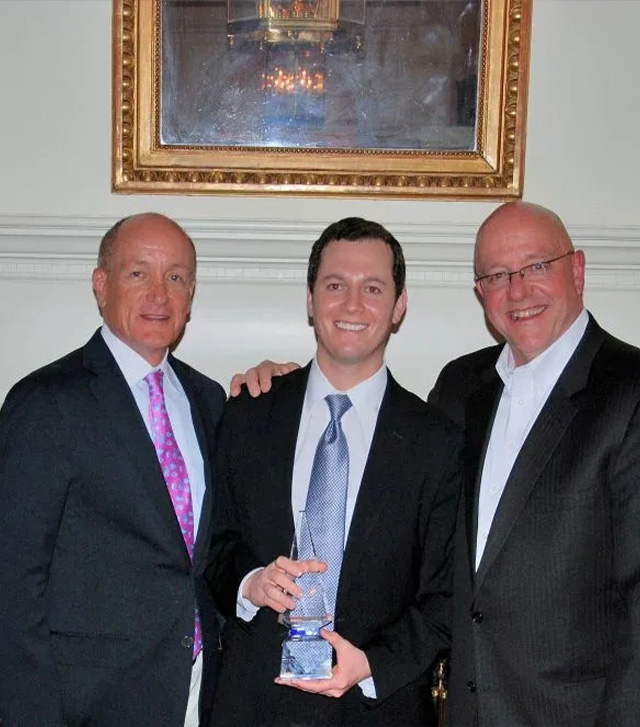Top Entrepreneurs Describe the Moment That Confirmed Their Success
“Those moments come after traveling the hardest roads,” says former iCore CEO Stephen Canton.
In any journey to success, there is often that one “magic moment” where it becomes clear that the tides are turning. That the hard work has paid off, and life is about to change for the better.
For corporate chiefs who have triumphed on the national and global levels, often that “Aha” moment comes after a test of their leadership mettle. Overcoming challenges confirms to many future captains of industry that they have the right stuff. And that others see it too.
We asked three business leaders, based from Florida to Hong Kong, to look back on their careers for that moment that they “knew.”
“Those moments came after traveling the hardest roads,” says Stephen Canton, former CEO of iCore Networks and current senior partner with Anacostia Ventures. “The toughest roads are the best teachers.”
In the pages that follow, Canton, direct selling titan Vijay Eswaran and healthcare CEO Brad Sorte each share the challenges that shaped their careers and determined their success.
“It’s one moment,” Canton says, “that was built upon many. We craft our success or failure with every decision that we make.”
Stephen Canton, senior partner with Anacostia Ventures, a Florida-based venture capital company, and former CEO of iCore Networks, a Virginia-based telecommunications company.
It’s hard to pick one ‘magic’ moment. There were many steps, both forward and backward, over a 30-year career. I would best describe my journey as a ‘working man’s path to success.
The critical moments were all based on a commitment to excellence. I was driven to be successful, even in the smallest of management opportunities, and took any chance that I had to prove myself.
In one of these ‘magic moments,’ the chance was to run a small floundering sales team in New York City. I was relentless in my pursuit of turning this office around. With strategic recruitment and management, I took that office and that city by storm. Labeled the “cold call king” of New York, I was branded the toughest, smartest, and most electric manager in the company and arguably the industry.
That success reinforced to me that I was born to fight, lead and win. With a chip on my shoulder and a lot of chutzpah, I was willing to take on all corners in the ring. Sure, I was no-nonsense, but I was fun to be around. My primary motivation was to make all those around me successful in their jobs, which in turn made me successful in mine.
Truth be told, getting bounced out of every academic institution at every level starting in high school taught me a very valuable lesson. While I didn’t have the technical book-learning knowledge that those with a Harvard MBA might, what, I knew beyond a shadow of a doubt, was that the better the competition, the better I played.
But despite my success leading sales teams, I was intentionally excluded from investor meetings and board meetings. This was due to my perceived lack of knowledge of the financial workings of a company. It seemed that I was pigeonholed into a vice president of sales position. And while I was providing a good lifestyle for my family, I knew I was capable of more.
Being discounted made me determined to go outside the lines to get educated. I took executive management courses at the Ross School of Business at the University of Michigan, and global sales distribution strategies courses at Harvard University, excelling in both programs.
Gaining that technical knowledge that I needed and learning the balance sheets and income statements backward and forwards proved critical when I founded iCore Networks in 2001. In every market iCore served, we were widely regarded as the best in the business. We were a non-branded product that rose to THE most successful brand, leading telecom giant Vonage to acquire iCore for $92 million in 2015.
For me, it’s always been about the little guy taking on the big guy. I think the hardest roads in life are the greatest teachers. Growth comes from a tough environment.
Remember that winning and losing are part of the game, be it in business or in life. At the end of the day, it’s how you played it. We took winning and losing in stride, knowing we acted nobly. We knew that we were the best at what we did and let the market determine the winners and the losers.
On the path to success, I think you’ll find one thing in common behind many a breakthrough moments. And that is excellence in the face of adversity.
Vijay Eswaran, executive chairman of QNet, a Hong Kong-based direct selling and e-commerce company
I started my company at the height of the Asian economic crisis with a few other partners. It wasn’t considered a great time to start a business, especially one in e-commerce, since this was also at the tail end of the dot.com bust in the late 90s…Given this background, we knew we had our work cut out for us.
About a year or so into our start-up journey, we had just moved our base to Hong Kong, and we held a Board meeting to discuss our next steps. At this meeting, which I was chairing, one of the shareholders asked to be paid a substantial amount of money as dividends. I remember being taken aback because, in my mind, we were still that struggling start-up in sink or swim mode, just trying to get through each month. It hadn’t even crossed my mind that we were now in the safe zone.
Once I looked at the books and did the numbers, I was pleasantly surprised to realize that not only could we pay the dividends the shareholders were asking for, we could actually double it!
To be honest, the tide had turned some time back, but that moment passed me by, and I only recognized it much after the fact. I had been so busy and engrossed in building the company that I don’t think I even realized when things started to change. I wasn’t really paying attention to how far we’d come.
That story began when I joined as a distributor at a popular Asian direct selling company of the 90s and began building a business with them…Soon I was doing so well that they gave me the opportunity to expand the business into the Philippines. There I found another interesting direct selling business opportunity by an American company that was looking to expand in Asia. I joined this company, and that’s where I met the people who would eventually become my co-founders later.
Without warning, one day in mid-1998, the American company shut up shop and disappeared almost overnight, leaving us with thousands of dollars in unpaid commissions and hundreds of pending product deliveries.
My leadership team and I sat down to discuss how to handle the situation. We had a choice between pleading innocence and letting down thousands of people who had put their faith in us or taking responsibility and doing something about it. We decided we would start our own direct selling company and do things the right way.
At the time, the idea of being able to deliver products across the world to one’s doorstep was being revolutionized by Amazon. Taking that into account, I proposed that we merge the tried and tested direct selling business with the then up and coming e-commerce business model. It was a gamble, but it paid off. That was our first company.
Since then, we have grown into a multi-business conglomerate with diverse interests that range from a university, a luxury watch brand, hotels and resorts, and even a football team.
Brad Sorte, CEO, and president-elect of Caron Treatment Centers, a Pennsylvania-based drug and alcohol treatment network.
For me, that “magic moment” truly happened when I was tapped to succeed the executive overseeing Caron Treatment Center’s Florida location. It was particularly memorable because it was out of the blue, and no one knew the executive was retiring.
This was in 2015, and I was at home when I found out about the promotion. I didn’t know I’d be a successor to this leadership position. However, I had been making efforts to present myself as a qualified candidate by going back to business school and volunteering for projects that gave me additional exposure.
Securing that role was significant because it validated my personal strategic plan, which was to combine my clinical experience with business acumen, a combination of skills that are unique in the behavioral healthcare sector.
I’ve always been interested in behavioral health. I knew any material opportunities in the field would require going to grad school, but I wanted the hands-on experience as well. So, I took a job as an overnight tech at a treatment center. This was the moment in my career when I was fortunate to be in the right place at the right time. There was a transition at the organization, and I was able to play a more active role in direct care. In fact, I spent nearly two years acquiring substantial skills that would traditionally have been difficult to get prior to having a graduate degree.
So I worked as a therapist while going to business school, with the objective that one day those two skill sets would organically come together.
Hard work also played a big part in my growth. I deliberately chose to never shy away from challenging projects. If there was a problem that needed fixing, I was the first to volunteer. In my experience, making colleagues aware of your abilities is one of the best ways to highlight your unique skill set and yourself. I wanted to learn, to be able to say, “I can do that!” So I pushed myself. You need to be intentional and deliberate.
Again, never underestimate the timing factor. My skill set, coupled with the organization having the right mindset, fell into place nicely.
So overall, hard work, luck, and timing are all important factors. You do also make your own luck, though, by choosing to take on projects that are challenging. Choosing opportunities where you can add value and learn more, not just remain in your comfort zone, will set you apart.
For Sorte, Eswaran, and Canton, it’s clear that big breakthroughs were built upon countless small moments of strength in the face of adversity.
“Success, like many things,” says Canton, “happens gradually. And then all at once.”




